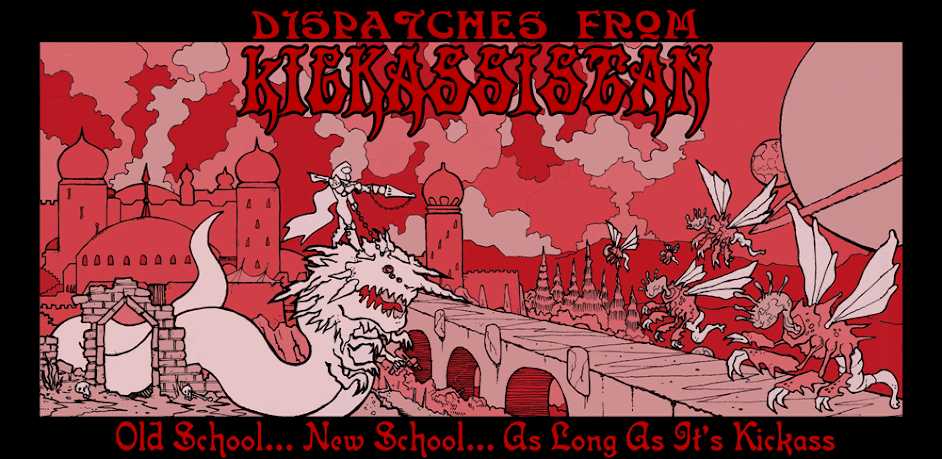Welcome back to Henchmen Week! The only week that starts on Tuesday and goes until the rations run out! In our series so far, we've talked about how the DM can go about generating some interesting potential henchmen and then how the PCs can find those henchmen, so now it's time to talk about how to go about recruiting those henchmen to get them to work for the players. But first, some ground rules.
Ground Rules
- Henchmen work for the guy who pays them, not some other party member. Just like most of us have a boss, and that boss is the guy who signs the pay checks, so do henchmen. So no, you cannot recruit henchmen on behalf of another player and no, your loyalty modifier does not apply to his henchmen.
- Henchmen don't carry their money on them, unlike players. Once you've paid a henchman, he either spends that money or squirrels it away somewhere you can't get at it. No paying henchmen a bunch of money as a signing bonus to improve their loyalty then killing them off and taking the money back.
- In the Iron Coast campaign, this one should be called "Drako's Law" or something like that. Not because +Scott Cambers's mage Drako follows the rule, but rather because he needs a constant reminder of it!
- When you stop paying a henchman, he stops being your henchmen. There is no such thing as "stabling" a henchman unless you continue to pay for his services. Thus, he may enter into service with another adventuring group. He's not cheating on you because you already broke up with him.
There, now that we've got those out of the way, let's move on, shall we?
The Standard Offer
The standard offer is a basic compensation package that is the baseline for all offers made to hire henchmen.
- Agreement to pay a monthly wage commensurate with level.
- An upfront payment equal to the greater of 100gp or 1 month's wage. This is considered wages paid, so a PC hiring a level 1 henchman (25 gp per month) would pay for the first 4 months of service up front.
- A share of any treasure won while he is assisting the employer. Think of this as hazard pay. If the henchman exposes himself to danger (such as setting foot in a dungeon), he earns a share of the spoils. This share is usually 15% of his employer's share.
This basic compensation package nets the player no modifiers to the recruitment roll (see tomorrow's post), but it may be modified to suit the PC's needs or to make it more appealing to the henchman. The employer can sweeten the deal to make it harder for the potential henchman to say no, or he can offer more austere terms if the player is confident enough in his PC's negotiation skill (and Charisma score).
- Higher wage: +1 for every additional multiple of monthly wage (+1 for 2 times wage, +2 for 3 times, etc.)
- Lower wage: -2 for every halving of monthly wage (-2 for 1/2 times wage, -4 for 1/4 times, etc.)
- Higher share of spoils: +1 per additional 5% of employer's share of spoils
- Smaller share of spoils: -2 per 5% less of employer's share of spoils
- Higher signing bonus: +1 per additional month of wage added to signing benefit
- Lower signing bones: -2 per monthly wage signing bonus is lowered by
Yes, these modifiers are skewed to punish stingy PCs. That's how I roll.
Today's post was originally supposed to be much longer, but then real life stepped in and made me make a hard decision: post less today and more tomorrow or wait until tomorrow and post a whole lot? So, I made the obvious choice and decided to give you something to chew on until then. Tomorrow, I'll be talking about whether or not your offer is good enough and the negotiation minigame.
